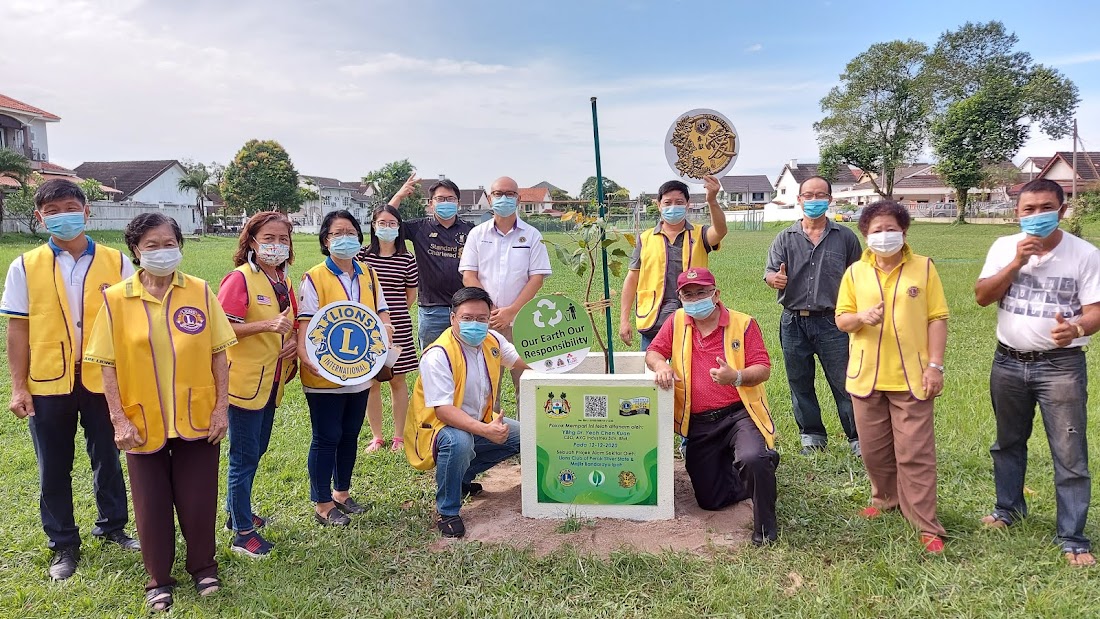The team from Kohijau and Ipoh Parade at the launch of the 71st Kohijau recycling bin at the shopping centre
KOPERASI Alam Hijau Perak Bhd (Kohijau), a non-governmental organisation, has launched its 71st recycling bin.
Collaborating with a mall for the first time in conjunction with International Earth Day, Ipoh folk will now find its recognisable new green recycling bin at Ipoh Parade shopping centre.
Kohijau and Ipoh Parade aim to work hand-in-hand to raise awareness of and put an end to plastic pollution.
The mall pledges to stop irresponsible littering and encourage the public to dispose of any waste materials, especially plastic, into the Kohijau recycle bin located at B1 of its underground parking lot next to the car wash centre.
During the launch, Ipoh City Watch and Kohijau chairman Dr Richard Ng said the 2.7 million population of Perak produces an estimated 600,000 tonnes of garbage each year.
“Of this total, about 15% or 90,000 tonnes consist of plastic.
“About 10,000 tonnes are recovered through recycling and 80,000 tonnes end up in landfills, rivers, oceans and illegal dumpsites,” he said at the event.
Ng said plastic has an impact on carbon footprint as it uses non-renewable energy to produce.
“Plastic garbage from the landfills produces methane gas and carbon dioxide over the years and affects greenhouse gas, which also has an impact on global warming,” he said.
Ng urged the state government to reverse its decision on banning plastic, which was supposed to be implemented on June 1, 2017, but has been postponed indefinitely.
“States such as Selangor, Melaka and Johor have banned the use of certain plastics and polystyrene and Perak should set a good example if Ipoh were to remain as the cleanest city and Perak the second cleanest state in the country,” he said.
Ipoh Parade advertising and promotions executive Nabilah Mohammad said they hope to encourage shoppers to recycle using the Kohijau system as it is unique and benefits shoppers in return.
“Kohijau’s speciality is that recycling comes with a rewards system.
“Not only do we want the public to come here for shopping and entertainment, we also want them to protect Mother Nature,” she said.
To get started, shoppers can sign up as members of the recycling programme at www.icycle-global.com.
Once personal details are submitted, every person will receive a set of barcodes unique to their membership via postal mail.
Then, shoppers will need to place all their recyclables in a disposal bag with the bar code sticker attached and drop them into the new Kohijau bin at the mall.
The recyclables will be collected every week and members are given recycling points based on the barcodes scanned.
Members can check and redeem their recycling points online and stand a chance to get shopping vouchers.
To date, a total of 80,000kg of recyclables has been collected from 7,000 members through its bins placed throughout Perak.
The locations of other Kohijau recycling bins can be found on its website.
https://www.thestar.com.my/metro/metro-news/2018/04/27/it-pays-to-go-green-new-bin-at-mall-encourages-shoppers-to-recycle-and-be-rewarded/






